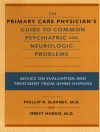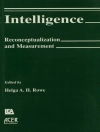Bridging the gap between traditional classical statistics and a Bayesian approach, David Kaplan provides readers with the concepts and practical skills they need to apply Bayesian methodologies to their data analysis problems. Part I addresses the elements of Bayesian inference, including exchangeability, likelihood, prior/posterior distributions, and the Bayesian central limit theorem. Part II covers Bayesian hypothesis testing, model building, and linear regression analysis, carefully explaining the differences between the Bayesian and frequentist approaches. Part III extends Bayesian statistics to multilevel modeling and modeling for continuous and categorical latent variables. Kaplan closes with a discussion of philosophical issues and argues for an ‘evidence-based’ framework for the practice of Bayesian statistics. User-Friendly Features *Includes worked-through, substantive examples, using large-scale educational and social science databases, such as PISA (Program for International Student Assessment) and the LSAY (Longitudinal Study of American Youth). *Utilizes open-source R software programs available on CRAN (such as MCMCpack and rjags); readers do not have to master the R language and can easily adapt the example programs to fit individual needs. *Shows readers how to carefully warrant priors on the basis of empirical data. *Companion website features data and code for the book’s examples, plus other resources.
Содержание
I. Foundations of Bayesian Statistics1. Probability Concepts and Bayes’ Theorem1.1. Relevant Probability Axioms1.1.1. Probability as Long-Run Frequency1.1.2. The Kolmogorov Axioms of Probability1.1.3. The Rényi Axioms of Probability1.1.4. Bayes’ Theorem1.1.5. Epistemic Probability1.1.6. Coherence1.2. Summary1.3. Suggested Readings2. Statistical Elements of Bayes’ Theorem2.1. The Assumption of Exchangeability2.2. The Prior Distribution2.2.1. Noninformative Priors2.2.2 .Informative Priors2.3. Likelihood2.3.1. The Law of Likelihood2.4. The Posterior Distribution2.5. The Bayesian Central Limit Theorem and Bayesian Shrinkage2.6. Summary2.7. Suggested Readings2.8. Appendix 2.1. Derivation of Jeffreys’ Prior3. Common Probability Distributions3.1. The Normal Distribution3.1.1. The Conjugate Prior for the Normal Distribution3.2. The Uniform Distribution3.2.1. The Uniform Distribution as a Noninformative Prior3.3. The Poisson Distribution3.3.1. The Gamma Density: Conjugate Prior for the Poisson Distribution3.4. The Binomial Distribution3.4.1. The Beta Distribution: Conjugate Prior for the Binomial Distribution3.5. The Multinomial Distribution3.5.1. The Dirichlet Distribution: Conjugate Prior for the Multinomial Distribution3.6. The Wishart Distribution3.6.1. The Inverse-Wishart Distribution: Conjugate Prior for the Wishart Distribution3.7. Summary3.8. Suggested Readings3.9. Appendix 3.1. R Code for Chapter 34. Markov Chain Monte Carlo Sampling4.1. Basic Ideas of MCMC Sampling4.2. The Metropolis–Hastings Algorithm4.3. The Gibbs Sampler4.4. Convergence Diagnostics4.5. Summary4.6. Suggested Readings4.7. Appendix 4.1. R Code for Chapter 4II. Topics in Bayesian Modeling5. Bayesian Hypothesis Testing5.1. Setting the Stage: The Classical Approach to Hypothesis Testing and Its Limitations5.2. Point Estimates of the Posterior Distribution5.2.1. Interval Summaries of the Posterior Distribution5.3. Bayesian Model Evaluation and Comparison5.3.1. Posterior Predictive Checks5.3.2. Bayes Factors5.3.3. The Bayesian Information Criterion5.3.4. The Deviance Information Criterion5.4. Bayesian Model Averaging5.4.1 Occam’s Window5.4.2. Markov Chain Monte Carlo Model Composition5.5. Summary5.6. Suggested Readings6. Bayesian Linear and Generalized Linear Models6.1. A Motivating Example6.2. The Normal Linear Regression Model6.3. The Bayesian Linear Regression Model6.3.1. Noninformative Priors in the Linear Regression Model6.3.2. Informative Conjugate Priors6.4. Bayesian Generalized Linear Models6.4.1. The Link Function6.4.2. The Logit-Link Function for Logistic and Multinomial Models6.5 Summary6.6 Suggested Readings6.7. Appendix 6.1. R Code for Chapter 67. Missing Data from a Bayesian Perspective7.1. A Nomenclature for Missing Data7.2. Ad Hoc Deletion Methods for Handling Missing Data7.2.1. Listwise Deletion7.2.2. Pairwise Deletion7.3. Single Imputation Methods7.3.1. Mean Imputation7.3.2. Regression Imputation7.3.3. Stochastic Regression Imputation7.3.4. Hot-Deck Imputation7.3.5. Predictive Mean Matching7.4. Bayesian Methods of Multiple Imputation7.4.1. Data Augmentation7.4.2. Chained Equations7.4.3. EM Bootstrap: A Hybrid Bayesian/Frequentist Method7.4.4. Bayesian Bootstrap Predictive Mean Matching7.5. Summary7.6. Suggested Readings7.7. Appendix 7.1. R Code for Chapter 7III. Advanced Bayesian Modeling Methods8. Bayesian Multilevel Modeling8.1 Bayesian Random Effects Analysis of Variance8.2. Revisiting Exchangeability8.3. Bayesian Multilevel Regression8.4. Summary8.5. Suggested Readings8.6. Appendix 8.1. R Code for Chapter 89. Bayesian Modeling for Continuous and Categorical Latent Variables9.1. Bayesian Estimation of the CFA Model9.1.1. Conjugate Priors for CFA Model Parameters9.2. Bayesian SEM9.2.1. Conjugate Priors for SEM Parameters9.2.2. MCMC Sampling for Bayesian SEM9.3. Bayesian Multilevel SEM9.4. Bayesian Growth Curve Modeling9.5. Bayesian Models for Categorical Latent Variables9.5.1. Mixture Model Specification9.5.2. Bayesian Mixture Models9.6. Summary9.7. Suggested Readings9.8. Appendix 9.1. “RJAGS” Code for Chapter 910. Philosophical Debates in Bayesian Statistical Inference10.1. A Summary of the Bayesian Versus Frequentist Schools of Statistics10.1.1. Conditioning on Data10.1.2. Inferences Based on Data Actually Observed10.1.3. Quantifying Evidence10.1.4. Summarizing the Bayesian Advantage10.2. Subjective Bayes10.3. Objective Bayes10.4. Final Thoughts: A Call for Evidence-Base Subjective Bayes References Index
Об авторе
David Kaplan, Ph D, is Professor of Quantitative Methods in the Department of Educational Psychology at the University of Wisconsin–Madison and holds affiliate appointments in the Department of Population Health Sciences and the Center for Demography and Ecology. Dr. Kaplan’s program of research focuses on the development of Bayesian statistical methods for education research. His work on these topics is directed toward application to quasi-experimental and large-scale cross-sectional and longitudinal survey designs. He is most actively involved in the Program for International Student Assessment, sponsored by the Organisation for Economic Co-operation and Development—he served on its Technical Advisory Group from 2005 to 2009 and currently serves as Chair of its Questionnaire Expert Group. Dr. Kaplan also is a member of the Questionnaire Standing Committee of the U.S. National Assessment of Educational Progress, is a Fellow of the American Psychological Association (Division 5), and was a Jeanne Griffith Fellow at the National Center for Education Statistics.












